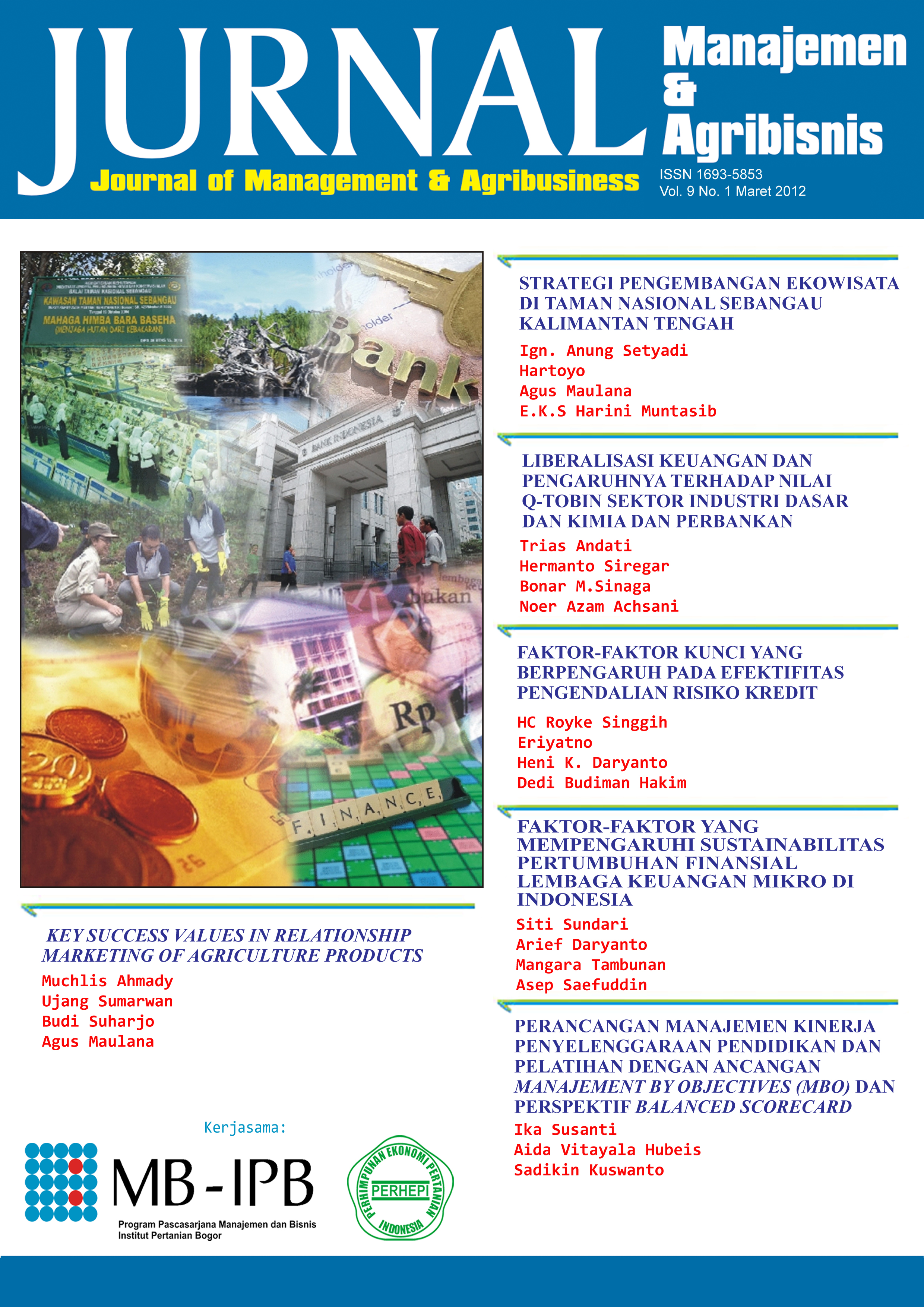STRATEGI PENGEMBANGAN EKOWISATA DI TAMAN NASIONAL SEBANGAU KALIMANTAN TENGAH
Abstract
This study examines the development strategy of ecotourism in Sebangau National Park (TNS), Central Kalimantan. The purpose of this study was to formulate development strategy of TNS ecotourism. Data processing method was done performed by descriptive analysis (quantitative and qualitative), Exponential Comparative Method determined the prospective ecotourism products and Importance-Performance Analysis (IPA) used to identify ecotourism object readiness. Priority of aspects, problems, solutions and strategic were determined by Analytic Network Process (ANP) method. The main problem encountered in the development of ecotourism in the TNS were lack of infrastructure and accessibility, as well as convincing the community by the local goverment on the importance of ecotourism. The main solutions for development of ecotourism in the TNS is the provision of infrastructure and accommodation facilities. The results showed that the main strategies is to increase cooperation with stakeholders (networking) and increased promotion/information ecotourism products.
Keyword: Business Strategy, Eco-Tourism, ANP, Sebangau National Parks
Authors
Authors who publish with this journal agree to the following terms:
- Authors retain copyright and grant the journal right of first publication with the work simultaneously licensed under a Creative Commons Attribution License that allows others to share the work with an acknowledgement of the work's authorship and initial publication in this journal.
- Authors are able to enter into separate, additional contractual arrangements for the non-exclusive distribution of the journal's published version of the work (e.g., post it to an institutional repository or publish it in a book), with an acknowledgement of its initial publication in this journal.
- Authors are permitted and encouraged to post their work online (e.g., in institutional repositories or on their website) prior to and during the submission process, as it can lead to productive exchanges, as well as earlier and greater citation of published work (See The Effect of Open Access).

